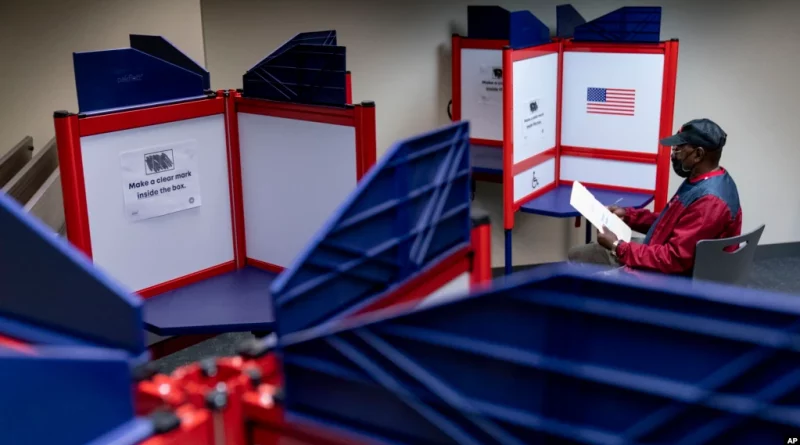Why does it take so long for votes to be counted in congressional elections?
Why does it take so long for votes to be counted in congressional elections?
The balance of power in the U.S. Congress after Tuesday’s midterm elections is still undecided, with the results of some key races still unknown, even though more than two days have passed since the polls closed.
This long, multi-day wait for final results is far from uncommon in the United States, where the media are usually the first to announce election results, based on counting of votes by county clerks and other officials, as well as statistical analysis.
Although long delays can irritate American voters and raise questions from curious international observers, there are several reasons why the process can drag on.
For starters, U.S. elections are highly decentralized, and each of the 50 states has different rules.
Some Americans vote by machine, others by paper ballots. Some go to the polls in person, others vote by mail.
Some vote on Election Day, others vote early. Many use ballot boxes set up in public places.
While officials in many states called for patience with the vote count, Republican Senator Marco Rubio expressed his displeasure.
“If Florida can count 7.5 million ballots in five hours, why does it take some states days to count less than two million?” – Rubio wrote on Twitter.
U.S. ballots typically contain lists of candidates for several elections at once, as well as referendum questions, and they can take a long time to process.
With mail-in ballots, which became widespread during the COVID-19 pandemic, the process can take even longer because ballots can arrive at precincts for counting several days after the election.
Ohio and Alaska count ballots received within ten days of Election Day.
To make matters worse, in many states election officials cannot even begin counting mail-in ballots in advance.
Long counting times fuel conspiracy theories, especially after the 2020 election, when President Donald Trump unreasonably claimed that the results were rigged in favor of his opponent.
The outcome of the fight between Trump and Joe Biden, who was declared the winner, was not known until four days later.
Georgia played a special role in 2020, since the balance of power in the Senate depended on the results of the second round in that state.
There was a déjà vu effect this year.
Since no candidate received 50 percent of the vote in Tuesday’s Senate race, the two leading candidates, Democrat Rafael Warnock and Republican Herschel Walker, will face each other in a runoff on Dec. 6.
Holding an election in a country of about 333 million people is an organizational challenge in itself.
The procedure is rarely without minor glitches. This year, for example, there were problems with voting machines in one Arizona county, which disrupted voting.
Some Republicans, including Trump himself, saw evidence of irregularities, but authorities immediately rejected those claims.
But even in the absence of technical malfunctions, candidates’ results could be very close, as happened in some counties on Tuesday.
Twenty states have laws requiring mandatory recounts if the difference between candidates is too small.
